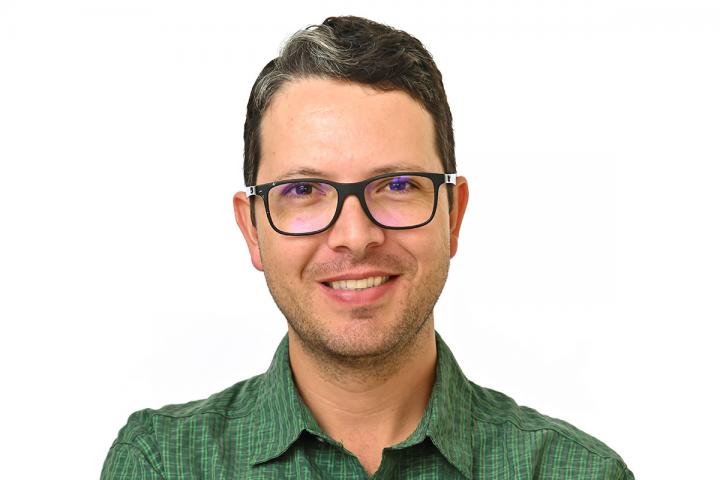
Credit: UCF, Rosen College of Hospitality
The University of Central Florida is one of two universities selected to study the social and economic impacts of Florida’s red tide events during 2017-19 that killed fish, stunk up the coastlines and sent tourists packing.
Notwithstanding today’s global pandemic, large chunk of Florida’s economy depends on its beaches and waterways. The red tide events, which release toxins killing fish and chasing tourists and residents from the stench, had a negative impact on humans and marine life, and crippled some local economies. The governor at the time declared a state of emergency.
The impact on business and the economy is why the Gulf of Mexico Coastal Ocean Observing System (GCOOS) and NOAA’s National Centers for Coastal Ocean Science (NCCOS) have funded two new studies worth $556,000 to determine the extent of the impact, look for best practices and provide communities a framework to help guide future mitigation efforts.
Assistant Professor Sergio Alvarez, from UCF’s Rosen College of Hospitality Management, will lead the study that looks at the economic impacts of these bloom events across 80 different sectors. He will use data analysis, social media and his team’s expertise in tourism to bring clarity to the murky picture.
“We know that harmful algal blooms drive people away from the waterfront,”
Alvarez says. “With this project, we will identify how Florida’s red tide has been
impacting the state’s economy in terms of reduced sales from different economic
sectors. But we are also testing the idea that information from social media could be
more of a driver in these impacts than so-called objective measures, like water
sampling data.”
Social media is one of the areas Alvarez’s team will be exploring in depth because it impacts behavior quickly.
“When everyday people make the small-scale and large-scale decisions that ultimately impact Florida’s economy, they’re not necessarily checking biophysical monitoring or formal economic metrics,” says Heather O’Leary from the University of South Florida, who is a co-investigator on the grant. “They’re more likely making those decisions by checking with friends and colleagues on social media. By keeping one eye on social media and the other on economic metrics, we’re able to get a better sense of how these interact to make [blooms] worse, or to lessen their impact.”
One of the distinguishing features of the study is the investigators attempt to identity how messengers — official organizations, news outlets, private citizens — can impact consumer behavior.
Another item under analysis, are objective measures of the bloom events such as water sampling better at explaining changes in consumer behavior than subjective measures such as social media posts?
What the group learns will be of interest throughout Florida, as the blooms from 2017-19 impacted communities from the panhandle to Miami and Key West to Jacksonville.
UCF will receive $277,122 for the two-year project.
Alvarez has a Bachelor of Arts in environmental sciences, and a master’s degree and doctorate in food and resource economics from the University of Florida. Between 2013 and 2018, Alvarez served as the chief economist at the Florida Department of Agriculture and Consumer Services, where he gained practical experience in state government and policy analysis. He has published articles on a range of topics including the economics of marine resources, the costs and management of biological invasions, and the value of ecosystem services such as clean water and outdoor recreation. Alvarez joined UCF in 2018 and is an affiliated member of the UCF National Center for Integrated Coastal Research.
The University of Central Florida is a public research university located in Orlando, Florida. Founded in 1963 to fuel the region’s talent pipeline and support the growing U.S. space program, UCF has been making an impact on the state, the nation — and outer space — ever since. UCF is an academic, partnership and research leader in numerous fields, such as optics and lasers, modeling and simulation, engineering and computer science, business, public administration, education, hospitality management, healthcare and video game design. The university is also a top supplier of graduates to the aerospace and defense industries. Ranked among the nation’s top 20 most innovative universities by U.S. News & World Report, UCF is also recognized as a best-value university by Kiplinger and one of the nation’s most affordable colleges by Forbes.
###
Media Contact
Zenaida Gonzalez Kotala
[email protected]




